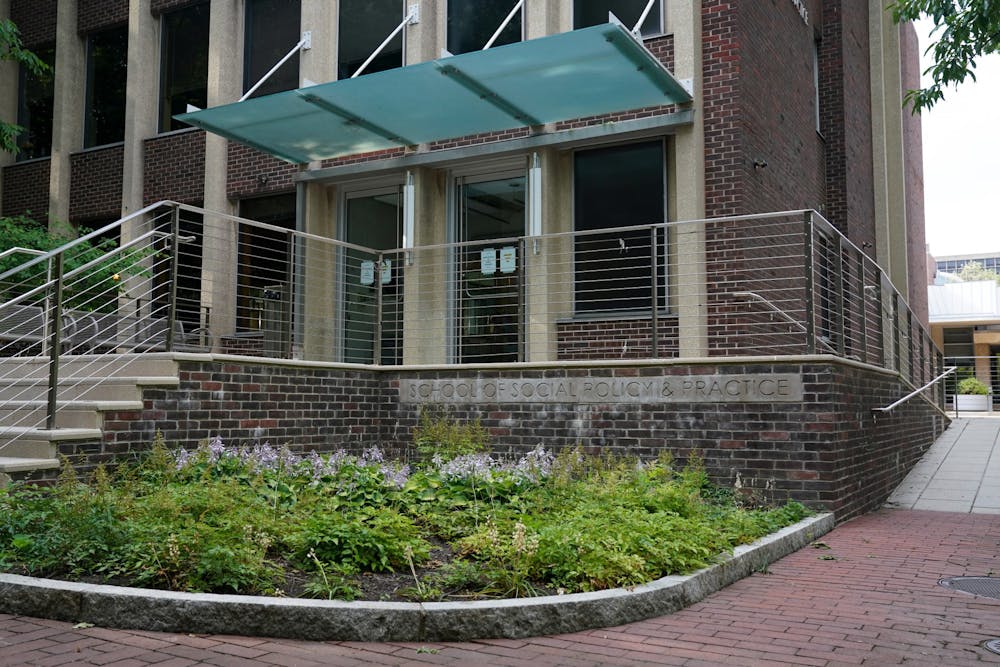The School of Social Policy & Practice and School of Dental Medicine have both launched a new mandatory anti-racism course for incoming students.
The online course, titled "The Penn Experience: Racism, Reconciliation and Engagement," consists of six Canvas modules spanning 20 hours that focus on Penn and Philadelphia's history of structural racism, implicit bias, allyship, gender identity, and healthcare equity. The modules feature readings and videos from people within Penn and the Philadelphia community, and they each conclude a short assessment.
SP2 professor Amy Hillier and Clinical Restorative Dentistry professor Beverly Crawford began planning the course in summer 2019, and it was offered for the first time this summer.
SP2’s Task Force on Race and Social Justice recommended in January that the school design an online summer module on anti-racist practices. While SP2’s mission affirms a commitment to social justice and inclusion, the task force concluded that “not everyone has the awareness, knowledge, and skills to implement these values across various areas of the school or is able to facilitate difficult conversations.”
Crawford said this curriculum is essential for Dental School students because they need to be able to give “culturally sensitive care” to their patients in and out of the Philadelphia community.
“The Dental School is a microcosm of society,” Crawford said. “The students need to be able to work with each other as peers, keeping in mind that every student brings their own cultures, history, and values.”
Hillier said many students entered the course with varying levels of knowledge on issues like race and gender.
“There were so many students who came into the school with no preparation for the conversation about race or racism. They knew nothing about white privilege and white supremacy,” Hillier said. “For folks of color, it was a lot of emotional labor, speaking on behalf of people of color, or listening to the stories of peers saying, ‘Oh my God. I didn’t realize that was racist.’”
RELATED:
Penn will not create an ethnic studies, anti-racism requirement despite community support
PSG’s $250k grant to Black student groups is just first step to tackle inequities, UMOJA says
Second-year SP2 student Danning Chen was a teaching assistant for the anti-racism course over the summer. She was in charge of reading feedback at the end of each module and answering students' questions.
Chen said she got involved with the course after facilitating a discussion about anti-Asian racism during the COVID-19 pandemic with Hillier. Before she could be a TA, Chen said she had to complete "The Penn Experience," and she said she was surprised to learn a lot about Philadelphia’s history of structural racism from the course.
"The Penn Experience" is an important course, Chen said, because it sheds light on subjects that are often shied away from in course syllabi. She also hopes that it will show incoming students that there are resources at Penn if they are facing discrimination.
“When we finally can come back to school and learn together, I think we will have a sense that we are a community and embrace diversity,” Chen said. “We must support each other and promote social equality, and we must start from our school.”
The planning for the course began much earlier than this year's COVID-19 pandemic and global protests against police brutality, according to Hillier. She said these events only solidified how important and timely the topics covered in the course are.
Both directors said they plan to expand this course to reach more students across additional graduate schools. From Penn Law School to the School of Veterinary Medicine, they said each graduate school would be able to adapt and tailor the curriculum to best suit their students’ needs.
According to the co-directors, the feedback so far from students has been overwhelmingly positive. Hillier said that The Penn Experience is just one of the first steps of achieving a more equitable school environment.
“Being at Penn means being willing to engage with these topics,” Hillier said. “Whether you are a student or the president of the University, there is nothing that is off-limits to talk about. This is a place that we all come to grow and learn.”









